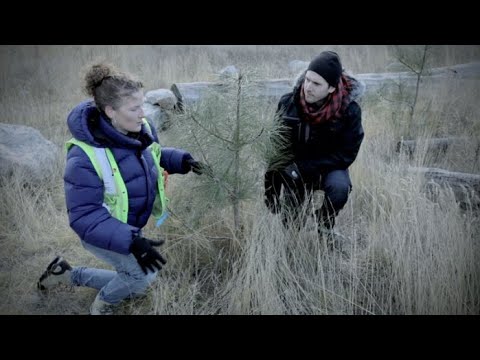Exploring Life: Biologist Jobs & Salaries

Biologist Job Description Template
Biologist Job Description A biologist is a scientist who studies living organisms and their interactions with the environment. They conduct research, perform experiments, and analyze data to gain a better understanding of biological processes and phenomena. Biologists work in various fields such as ecology, genetics, microbiology, and marine biology, among others. One important aspect of a biologist’s job is to collect and analyze samples and specimens. They may collect samples from plants, animals, or microorganisms in order to study their characteristics, behaviors, and interactions with their surroundings. This data is then analyzed to draw conclusions and make predictions about the organisms being studied. Another crucial responsibility of biologists is to conduct experiments and carry out tests in controlled laboratory settings. They use specialized equipment and techniques to manipulate variables, observe reactions, and measure outcomes. These experiments help biologists understand the mechanisms and processes underlying biological systems. In addition to research and experimentation, biologists also often engage in fieldwork. They may spend time in natural habitats, such as forests, oceans, or deserts, to study organisms in their natural environments. Fieldwork provides firsthand experience and allows biologists to observe and document behaviors, adaptations, and ecological relationships. Biologists also play an important role in disseminating their findings through scientific publications and presentations. They communicate their research findings to the scientific community, contributing to the collective knowledge and understanding of the field. In summary, a biologist’s job involves conducting research, collecting and analyzing samples, performing experiments, carrying out fieldwork, and communicating findings. Their work is essential for advancing our understanding of living organisms and their interactions with the environment.Biologist Responsibilities
Biologist Requirements
How Much Does A Biologist Make?
Biologist Salary
| Job Title | Salary |
|---|---|
| Research Biologist | $60,000 – $100,000 |
| Wildlife Biologist | $50,000 – $90,000 |
| Marine Biologist | $50,000 – $80,000 |
| Microbiologist | $50,000 – $90,000 |
| Environmental Biologist | $45,000 – $80,000 |
A biologist’s salary varies depending on their job title and experience level. Research biologists, with advanced degrees and extensive research experience, can earn between $60,000 and $100,000 per year. Wildlife biologists, who study and manage animal populations, typically earn between $50,000 and $90,000 annually. Marine biologists, specializing in aquatic life, earn around $50,000 to $80,000 per year. Microbiologists, studying microscopic organisms, can earn between $50,000 and $90,000. Environmental biologists, focusing on the impact of human activities on the environment, earn between $45,000 and $80,000 annually. These salary ranges can vary based on factors such as location, employer, and level of education and experience.
Biologist Salaries by Country
Top Paying Countries for Biologist
| Country | Average Salary (USD) |
|---|---|
| Switzerland | 105,000 |
| United States | 83,000 |
| Denmark | 77,000 |
| Australia | 74,000 |
| Netherlands | 72,000 |
A biologist’s salary can vary greatly depending on the country they work in. According to recent data, Switzerland offers the highest average salary for biologists, with professionals earning around $105,000 per year. The United States follows closely behind with an average salary of $83,000. Denmark, Australia, and the Netherlands also make it to the list of top paying countries, offering average salaries of $77,000, $74,000, and $72,000 respectively.
A video on the topic Biologist
Video Source : County of Los AngelesInterview Questions for Biologist
1. What is the role of a biologist?
A biologist is a scientist who studies living organisms and their interactions with the environment. They investigate the structure, function, growth, evolution, and distribution of various organisms.
2. What are some common research methods used by biologists?
Biologists use a variety of research methods, including observation, experimentation, data analysis, and fieldwork. They may also utilize techniques such as DNA sequencing, microscopy, genetic engineering, and statistical modeling.
3. What are the different branches of biology?
Some branches of biology include molecular biology, ecology, genetics, microbiology, botany, zoology, and biochemistry. Each branch focuses on different aspects of living organisms and their interactions.
4. How do biologists contribute to environmental conservation?
Biologists play a crucial role in environmental conservation by studying and understanding the impacts of human activities on ecosystems. They develop strategies to protect endangered species, restore habitats, and promote sustainable practices.
5. Can you explain the process of evolution?
Evolution is the process by which species change over time through genetic variations and natural selection. It involves the accumulation of advantageous traits in a population, leading to the adaptation and survival of individuals with those traits.
6. What is the importance of biodiversity?
Biodiversity refers to the variety of life forms on Earth. It is crucial for maintaining ecosystem stability, providing ecosystem services, and supporting human well-being. Biodiversity also contributes to scientific and medical discoveries.
7. How does genetics influence human health?
Genetics plays a significant role in human health through inherited traits and susceptibility to diseases. Understanding the genetic basis of diseases helps in the development of targeted treatments, prevention strategies, and genetic counseling.
8. What are some challenges biologists face in their work?
Some challenges faced by biologists include limited funding for research, ethical considerations in experiments involving animals, conservation of endangered species, and the need to keep up with rapidly advancing technologies and scientific knowledge.
9. How does climate change affect ecosystems?
Climate change affects ecosystems by altering temperature and precipitation patterns, causing shifts in species distributions, disrupting plant-pollinator interactions, and increasing the frequency of extreme weather events. It can lead to habitat loss, species extinction, and changes in ecosystem functioning.
10. How do biologists contribute to the field of medicine?
Biologists contribute to medicine by studying the molecular basis of diseases, developing diagnostic tools, discovering new drugs, and conducting clinical trials. They also investigate the interactions between organisms and pathogens, helping to prevent and control infectious diseases.






